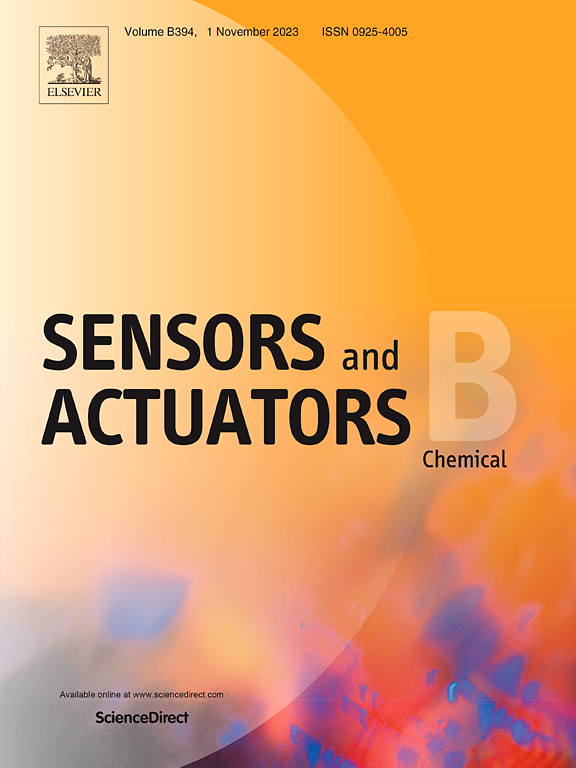Mussel-inspired washable, fatigue-resistant, and environmental-friendly smart textile for monitoring NH3
IF 8
1区 化学
Q1 CHEMISTRY, ANALYTICAL
引用次数: 0
Abstract
Smart textile-based wearable devices show promising application prospects for detecting NH3 concentrations in environmental and health monitoring. However, mechanical loads and aqueous environments during use can damage the interface between the textile fiber and the sensing layer, posing a challenge to the reliable performance of textile-based sensors. Herein, inspired by the adhesion chemistry of mussels, we report a fatigue-resistant, washable, and environmentally friendly smart textile (PANI-PDA-BF) for monitoring NH₃. This smart textile utilizes natural bamboo fiber (BF) cloth as the substrate, with a polydopamine (PDA) coating to enhance the bonding performance of the polyaniline (PANI) sensing layer to the bamboo fiber, thereby improving fatigue resistance and washability. Experimental results demonstrate that the sensitivity of PANI-PDA-BF only reduced by 11% and 22% after 10,000 tensile cycles and 30 min of washing deionized water, which is much lower than the 51% and 48% of PANI-BF (without PDA coating). Additionally, PANI-PDA-BF exhibits outstanding environmental-friendly due to the inherent biodegradation of PDA and BF. PANI-PDA-BF's exceptional NH3 sensing performance, durability, and environmental-friendliness make it an up-and-coming candidate for NH3 monitoring wearable devices.求助全文
约1分钟内获得全文
求助全文
来源期刊

Sensors and Actuators B: Chemical
工程技术-电化学
CiteScore
14.60
自引率
11.90%
发文量
1776
审稿时长
3.2 months
期刊介绍:
Sensors & Actuators, B: Chemical is an international journal focused on the research and development of chemical transducers. It covers chemical sensors and biosensors, chemical actuators, and analytical microsystems. The journal is interdisciplinary, aiming to publish original works showcasing substantial advancements beyond the current state of the art in these fields, with practical applicability to solving meaningful analytical problems. Review articles are accepted by invitation from an Editor of the journal.
 求助内容:
求助内容: 应助结果提醒方式:
应助结果提醒方式:


